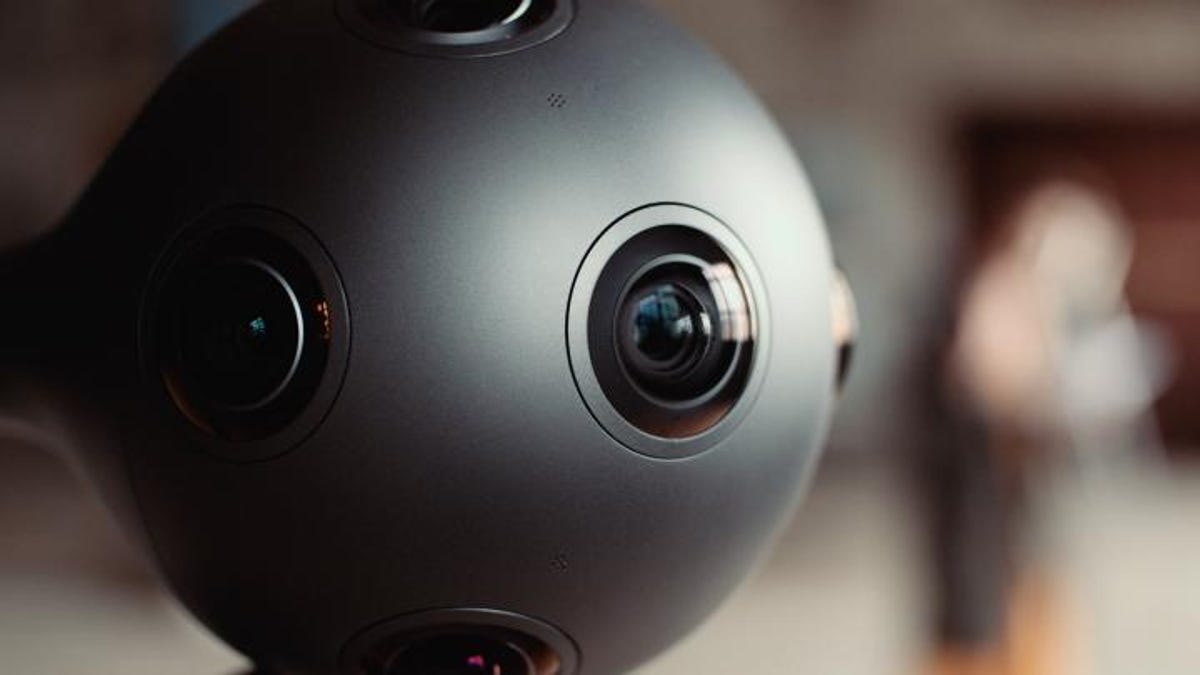Nokia jumps into virtual reality market with 360-degree Ozo camera
The camera taps eight synchronized shutters and eight microphones to capture 360-degree video and spatial audio.

Nokia Technologies plans to return to the consumer market, focusing on virtual reality rather than the cell phones that made it famous.
The Finnish company -- what was left of the former cell phone giant after Microsoft bought its handset division last year -- on Tuesday night unveiled Ozo, a next-generation camera for capturing 360-degree video and audio. Unveiled at an entertainment industry event in Los Angeles, the orb-shaped camera is designed for professional content creators rather than consumers.
"Ozo aims to advance the next wave of innovation in VR by putting powerful tools in the hands of professionals who will create amazing experiences for people around the world," Ramzi Haidamus, president of Nokia Technologies, said in a statement. "We expect that virtual reality experiences will soon radically enhance the way people communicate and connect to stories, entertainment, world events and each other. With Ozo, we plan to be at the heart of this new world."
With the announcement Nokia becomes the latest high-profile tech company to dabble in virtual reality, which immerses goggle-wearing users in three-dimensional worlds.
Once confined to realm of science-fiction movies like Walt Disney's "Tron," virtual reality has grown into a real-world industry worth an estimated $7 billion. At last month's Electronic Entertainment Expo -- the highest-profile video game conference of the year -- 27 exhibitors showcased virtual-reality products, up from six last year, according to the expo's organizer.
While the video game industry is expected to get an economic boost from virtual reality, the broader tech industry sees other applications for the nascent technology. In the past year, nearly every major tech company has announced or hinted at plans to take real steps into the emerging VR market. Facebook surprised the industry with its $2 billion buyout of VR headset maker Oculus in March 2014. Google unveiled its Cardboard. Apple filed and was awarded a patent for VR technology.
The camera will record stereoscopic 3D video and spatial audio through eight synchronized global shutter sensors and eight integrated microphones, Nokia said. Recorded content can then be published to virtual-reality hardware such as commercially available headsets, the company said. Nokia did not reveal pricing for the new camera, which is expected to begin shipping in the fall. (Update: it will cost $60,000.)
Nokia isn't alone in focusing on cameras as an entry point to the burgeoning market. In May, camera-maker GoPro announced plans to roll out a six-camera product later this year that is capable of capturing spherical content that can then be stitched together to create a 360-degree virtual reality environment.
Ozo represents a new tack for Nokia, once the world's most dominant handset maker. But the Finland-based company fell behind when it failed to adapt swiftly to the touchscreen smartphone craze and soon found itself well behind Samsung and Apple. As Nokia tried to rebuild its business, customers increasingly turned elsewhere.
Nokia exited the handset business a year ago when Microsoft formally acquired Nokia's phone division for $7.2 billion, taking the 150-year-old company out of the phone market for the first time in decades. Nokia Technologies -- one of three divisions that was not included in the sale -- refocused itself on its network equipment business -- the gear powering our cellular and business networks -- as well as its Here mapping service.
Last week, Nokia received approval from the European Commission to acquire the French telecoms company Alcatel-Lucent. The $16.6 billion deal would combine two of the world's largest network equipment manufacturers to better compete against market leaders Ericsson and Huawei.

